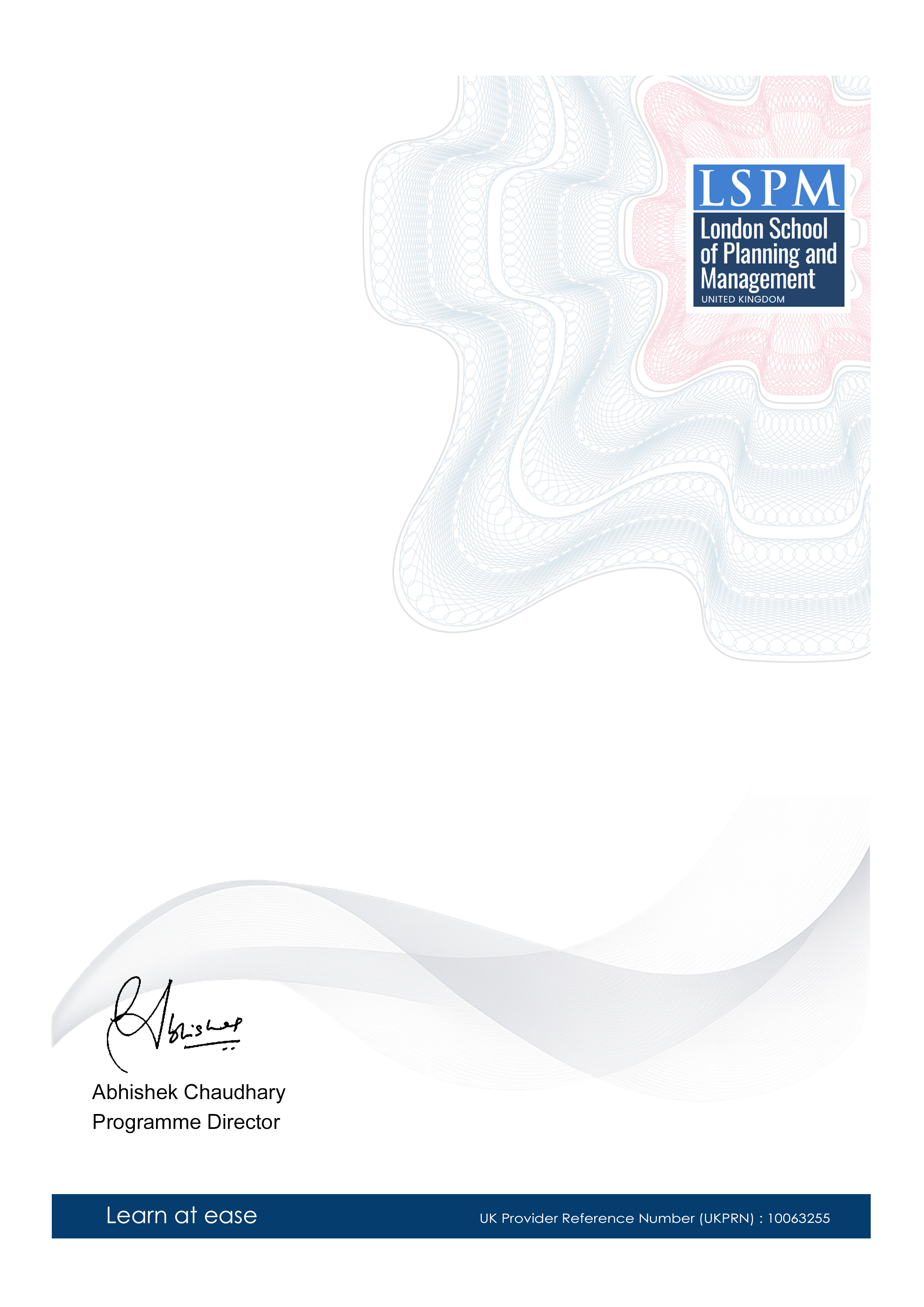Certified Specialist Programme in Biochemical Synthesis
-- viewing nowThe Certified Specialist Programme in Biochemical Synthesis Gain a competitive edge in the rapidly evolving biotechnology industry with the Certified Specialist Programme in Biochemical Synthesis. This comprehensive course focuses on the advanced techniques and methodologies used in biochemical synthesis, preparing learners for careers in research, pharmaceuticals, and biotechnology.
2,814+
Students enrolled
GBP £ 149
GBP £ 215
Save 44% with our special offer
About this course
100% online
Learn from anywhere
Shareable certificate
Add to your LinkedIn profile
2 months to complete
at 2-3 hours a week
Start anytime
No waiting period
Course details
• Biochemical Synthesis Fundamentals: Introduction to biochemical synthesis, molecular biology, and genetic engineering concepts.
• Nucleic Acid Synthesis: Techniques for DNA and RNA synthesis, including primer design, polymerase chain reaction (PCR), and in vitro transcription.
• Peptide and Protein Synthesis: Solid-phase and liquid-phase peptide synthesis, protein folding, and purification strategies.
• Enzyme Engineering: Directed evolution, enzyme kinetics, and applications in industrial biocatalysis.
• Metabolic Engineering: Principles of metabolic pathway engineering, genetic manipulation, and optimization for biochemical production.
• Bioinformatics Tools: Computational tools for gene sequence analysis, protein structure prediction, and pathway design.
• Process Scale-Up and Downstream Processing: Strategies for scaling-up biochemical synthesis processes, bioseparation techniques, and purification methods.
• Regulatory Compliance and Quality Control: Current Good Manufacturing Practices (cGMP), regulatory requirements, and quality control in biochemical synthesis.
• Emerging Trends in Biochemical Synthesis: CRISPR-Cas systems, genome editing, and synthetic biology.
Career path
Entry requirements
- Basic understanding of the subject matter
- Proficiency in English language
- Computer and internet access
- Basic computer skills
- Dedication to complete the course
No prior formal qualifications required. Course designed for accessibility.
Course status
This course provides practical knowledge and skills for professional development. It is:
- Not accredited by a recognized body
- Not regulated by an authorized institution
- Complementary to formal qualifications
You'll receive a certificate of completion upon successfully finishing the course.
Why people choose us for their career
Loading reviews...
Frequently Asked Questions
Course fee
- 3-4 hours per week
- Early certificate delivery
- Open enrollment - start anytime
- 2-3 hours per week
- Regular certificate delivery
- Open enrollment - start anytime
- Full course access
- Digital certificate
- Course materials
Get course information
Earn a career certificate

